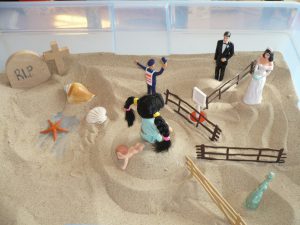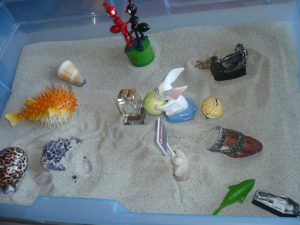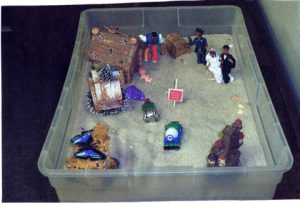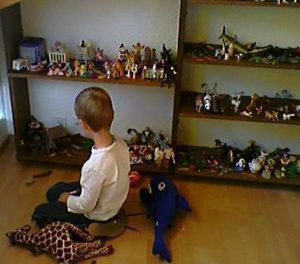How do I determine whether or not my child needs therapy?
 It is harder to note emotional pain or trauma with a child. Children have a broader repertoire of expression and use different language. Of course a child will rarely voice: “I need to see a therapist” (since most adults wouldn’t either…). With small children up until the age of 7-8, hurt and pain are often reflected by a sudden change in mood, energy level (hyperactivity or total apathy). One note also the presence of a large number of possible symptoms including: nightmares, night terrors, regressive behaviours, aggressive behaviours, self-injurious behaviours, morbid thinking, withdrawn child or overly clingy, agitation… Depression may take many different forms. In general the appearing symptoms usually occur in more than one single setting (such as school and home). The therapeutic work with children is often shorter than with adults for that children have great resilience, and are flexible, and prone to quick changes.
It is harder to note emotional pain or trauma with a child. Children have a broader repertoire of expression and use different language. Of course a child will rarely voice: “I need to see a therapist” (since most adults wouldn’t either…). With small children up until the age of 7-8, hurt and pain are often reflected by a sudden change in mood, energy level (hyperactivity or total apathy). One note also the presence of a large number of possible symptoms including: nightmares, night terrors, regressive behaviours, aggressive behaviours, self-injurious behaviours, morbid thinking, withdrawn child or overly clingy, agitation… Depression may take many different forms. In general the appearing symptoms usually occur in more than one single setting (such as school and home). The therapeutic work with children is often shorter than with adults for that children have great resilience, and are flexible, and prone to quick changes.
To engage and welcome parents or parental figures in treatment is an essential element of quick change.
How do I work with children?
 A child has a broader and more complex ability to use languages than adult. The symbolic world of a child is almost limitless. A child does not necessary acknowledge his pain because he may not have the words for it. In order to assist a child to express and abreact I use multiple channels of expression. Games, sand tray, story telling, drawings, music, puppets are natural ways of expression to a child, more than words. I use these playful medium to invite a child to a different encounter. A significant element of successful outcome with a child is to have a positive experience of therapy. Time suspension may appear for the child as if he was listening to a wonderful fairy tale and suddenly realises it is already over and …an hour has passed. Frequently children tell me when the hour has passed “But we just started and it is so much fun. When can I come again? A therapy session as in the game undergoes a perceptual time distortion. We witness at that time quick and significant progress in the treatment.
A child has a broader and more complex ability to use languages than adult. The symbolic world of a child is almost limitless. A child does not necessary acknowledge his pain because he may not have the words for it. In order to assist a child to express and abreact I use multiple channels of expression. Games, sand tray, story telling, drawings, music, puppets are natural ways of expression to a child, more than words. I use these playful medium to invite a child to a different encounter. A significant element of successful outcome with a child is to have a positive experience of therapy. Time suspension may appear for the child as if he was listening to a wonderful fairy tale and suddenly realises it is already over and …an hour has passed. Frequently children tell me when the hour has passed “But we just started and it is so much fun. When can I come again? A therapy session as in the game undergoes a perceptual time distortion. We witness at that time quick and significant progress in the treatment.
Working with sand tray or figurines, expressive work with sand trayIt may be hard for parents to come and consult for their children. Secretly or overtly, they may fear that they did not do the right think that they did not do enough. They often have the most terrible fear to be judged or condemned by the professional. I consider parents as allies. I am only a visitor in the life of a child and a family. The parents do a remarkable and day-to-day work with a child and deserve all my respect. I have for being a mother the utmost respect of the role of parent. I can appreciate the violent and increasing pressures put on parents and the constant juggling of being a parent.
For over 6 years, I have worked in one of the poorest area of Los Angeles County. I have work side by side with children exposed to the most unthinkable trauma and violence and what was left of their families or their support system. I have seen children who at only 8 have had already several different families. I have witness the incredible resilience that a child develop in the most cruel, empty, inhuman surroundings. My work with LA gangsters taught me that this work may be effective and bring hope in the most tragic of human lives.

